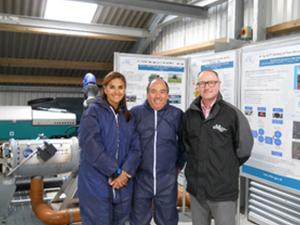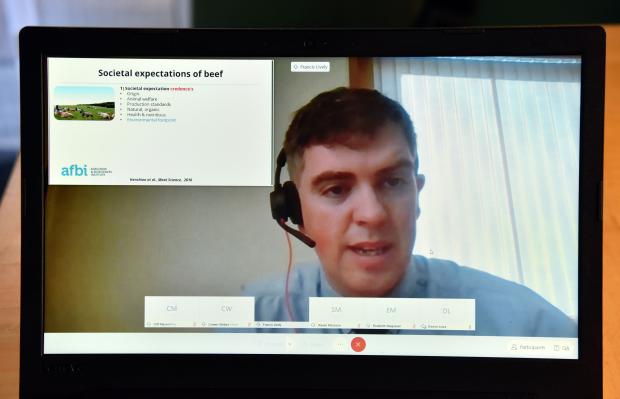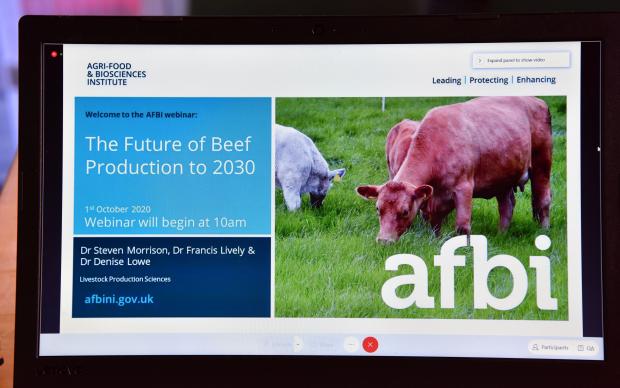AFBI Outlook Webinar - The Future of Beef Production to 2030
Date published:
The fourth of AFBI’s series of Outlook webinars examined the future of beef production and aroused much interest among stakeholders in the beef industry, with over 100 online attendees.

Dr Steven Morrison opened the webinar by giving an overview of the importance of the beef industry to the Northern Ireland economy, in terms of sales, job creation and exports. Additionally he highlighted how the beef industry has helped shape our countryside and provides a range of vital ecosystem services, such as flood prevention and a platform for biodiversity. Steven however, highlighted that the industry is under challenge on many fronts related to sustainability but, through scientific developments and the subsequent adoption by industry there are many opportunities to positively address these challenges.

Francis went on to highlight some of the key challenges and opportunities facing the beef industry to 2030, in terms of production efficiency and resilience to shock. These opportunities included capitalising on the role that grass offers for reducing production costs, increasing margins and helping minimise beef’s environmental footprint. However Francis highlighted the associated management challenges including weather and labour availability and when looking to the future he indicated how science and technologies could help overcome these barriers. Developments currently being explored at AFBI Hillsborough to provide such resilience included virtual fencing and the role of precision nutrition for making optimal use of concentrates. He also highlighted the importance of good health to ensure optimal performance and indicated the potential role that precision equipment to monitor the individual health status of cattle could offer in the future, providing affordable options become available.

Denise highlighted the potential role livestock genetics could play in reducing GHG emissions and how this could be accelerated through ‘omic’ technologies. As we strive towards ‘net zero carbon’ by 2050, Denise also highlighted how beef farming could increase the potential of carbon sequestration in our soils, trees and hedges.
The AFBI panelists finished the seminar by stressing the complexity but also importance of using a holistic approach in investigating and implementing measures that address the challenges facing the beef industry. The beef industry is an integral part of the countryside and society, providing a wide range of ecosystem services, not just the provision of food, and it was critical that all these services where examined together to determine synergies and trade-offs going forward.
A video of this webinar is now available to view on the AFBI YouTube channel
Notes to editors:
AFBI is an arms-length body of DAERA delivering research and development, diagnostic and analytical testing, emergency response capability and expert scientific advice for DAERA and other government departments, public bodies and commercial companies in Northern Ireland, and further afield.AFBI’s Vision is “Advancing the Local and Global Agri-Food Sectors Through Scientific Excellence”.AFBI’s core areas:Leading improvements in the agri-food industry;Protecting animal, plant and human health;Enhancing the natural and marine environment.All enquires to AFBI Press Office afbi.press-office@afbini.gov.uk